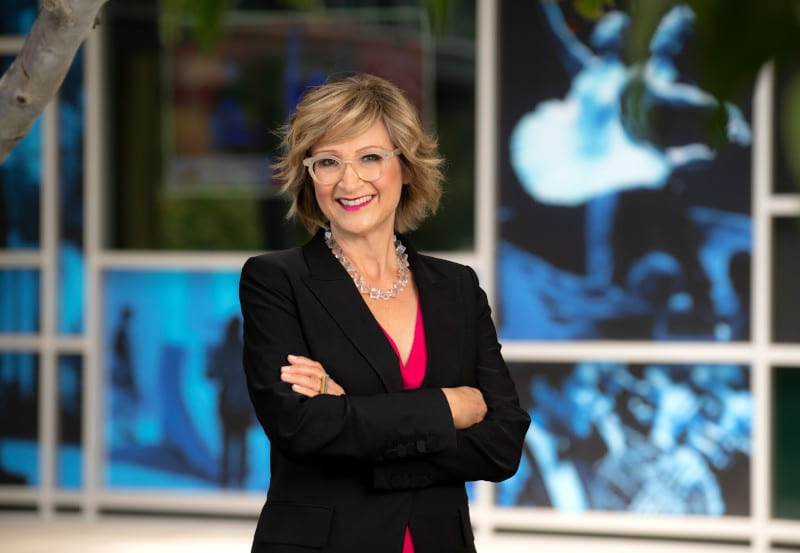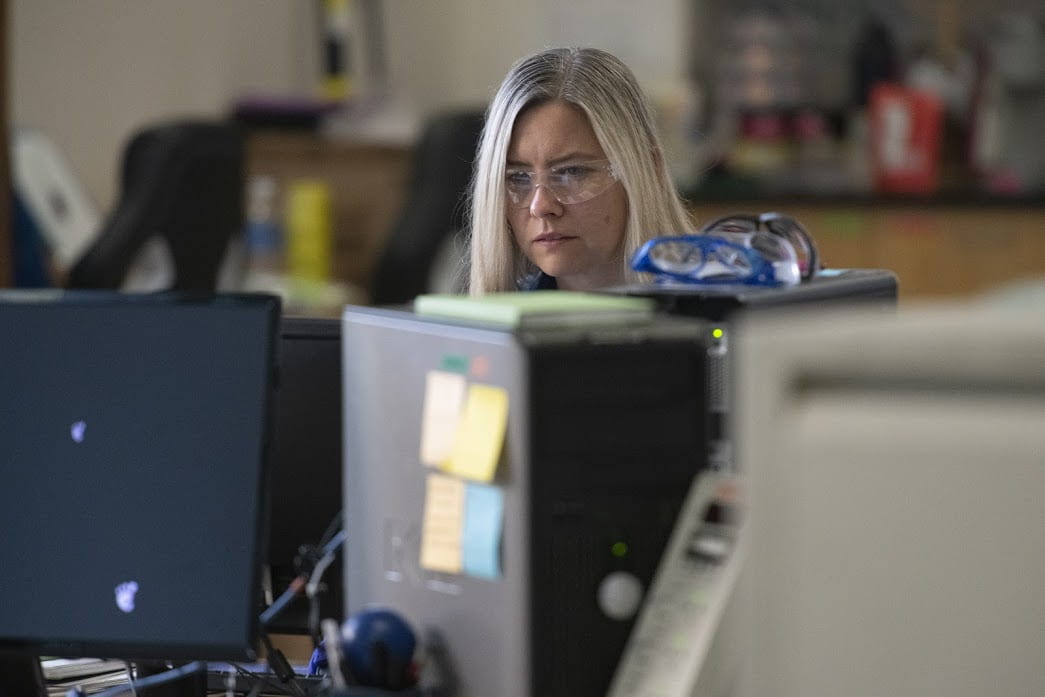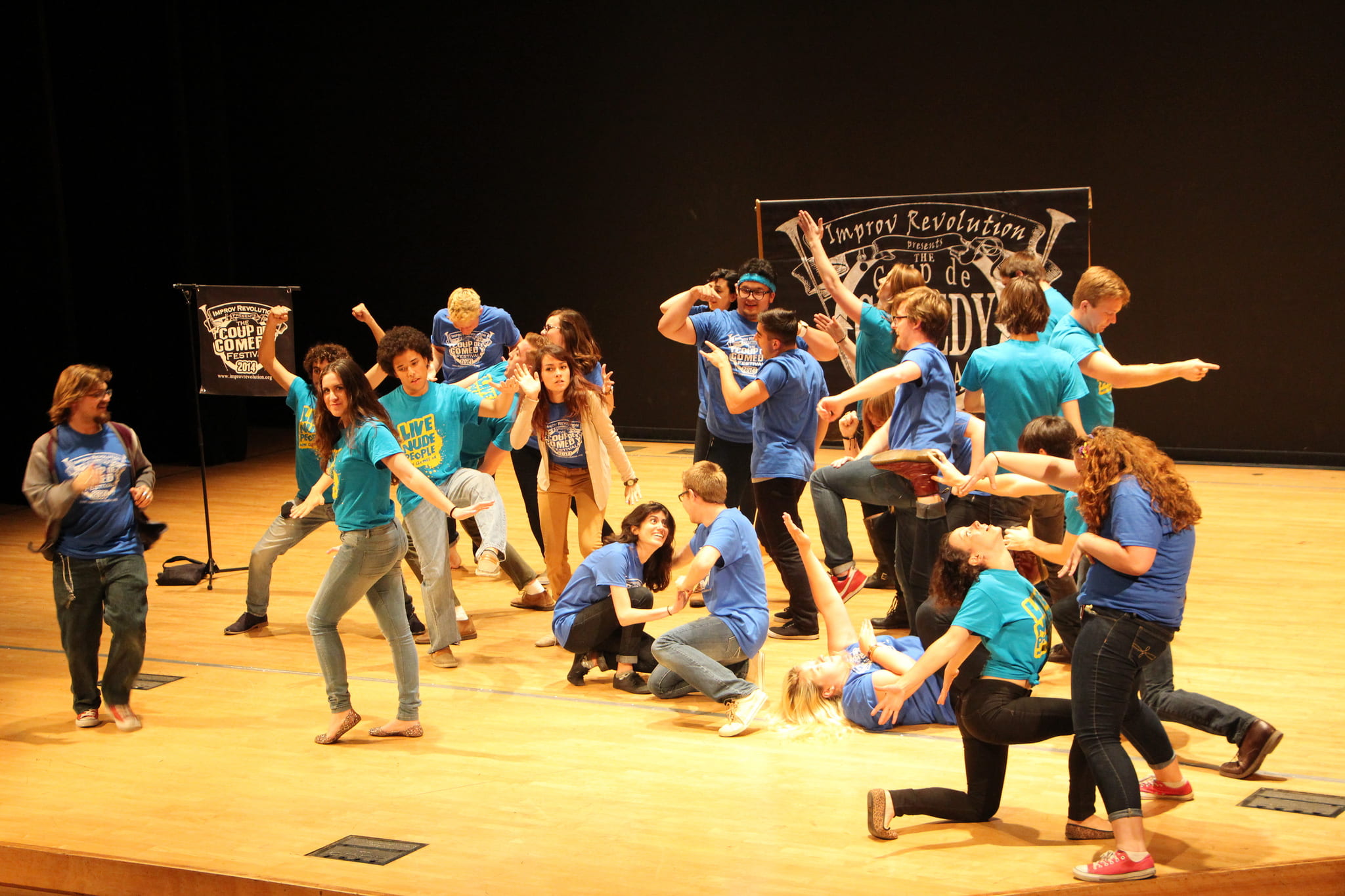UCI Podcast: The importance of the arts in higher education
New Claire Trevor School of the Arts Dean Tiffany López shares her views … and much, much more

The Claire Trevor School of the Arts is one of UCI’s shining gems. Its faculty and alumni have made indelible marks on the fields of art, theater, dance and music. That Broadway musical you just watched? Chances are a UCI graduate performed in it. That beautiful Urban Light installation at the LA County Museum of Art? Created by Chris Burden, who got his master of fine arts degree from UCI. The list goes on and on. There’s not a single arts organization in Orange County that doesn’t have a Claire Trevor School of the Arts stamp on it.
And now Tiffany López has come to UCI to lead them.
She joined as dean on July 1, and she has spent the past whirlwind four months learning about her school and developing a new vision for it.
And she’s now on the UCI Podcast to tell us about it … and much more – like the importance of the arts in higher education, the need for diversity, and why it’s necessary to invest into arts and music education for economically disadvantaged students in California’s public schools. Plus, she shares her own amazing story.
To get the latest episodes of the UCI Podcast delivered automatically, subscribe at:
Apple Podcasts – Google Podcasts – Stitcher – Spotify
TRANSCRIPT
Transcript
I really appreciate you joining the UCI podcast today, Dean Lopez,
Thank you so much for having me. I’m very excited.
Well, you’ve been at UCI now for five months. How’s it going?
I am so incredibly happy to be here as a part of the Claire Trevor School of the Arts, and then also at UCI and here in Orange County. It’s a triple homecoming. I’m born and raised in Southern California. I’ve had over 30 years in the University of California and also in arts. So I feel like I’m, coming home to incredibly large family.
And this is your third UC campus. You got your Ph.D. at Santa Barbara, served on the faculty at Riverside. Now you’re a dean at Irvine.
Yes.
So you’re moving on up.
Absolutely. And think that range of experience and what’s exciting about that is understanding what makes the UC the gold standard in higher education and what makes each UC campus unique. And what makes the Claire Trevor School of the Arts uniquely UCI.
You’ve become dean during a very critical time in higher education where many people are questioning the costs and debts surrounding a college education. There’s a growing trend of looking at college as more of a vocational school as a means to getting a well-paying job. Why is an arts education still important?
I see college and especially an arts education, it’s like a real estate investment. You’re buying a house in your head. And, you know, we know that over half the careers of the future will be invented by this generation. And the arts give incredible skills of agility, creativity and lifting up a diversity of approaches to thinking. But we also know that the challenges of the world’s problems that we’re facing, they are complicated and demand dynamic teams, and the arts are incredibly important in their skill set to what they bring to those teams. I think the vision is that all of our research teams, including STEM projects, would have an artist on them because of the perspective that gets brought.
It’s like Shakespeare wrote, “all the world’s a stage.”
Absolutely. And the arts have us very consciously think about that. And the other reason why I think the arts are more important now than ever before is the arts are this incredible lingua franca. When I talk with other deans across campus, they emphasize the importance of the arts for the messaging about the work that is happening in STEM fields to be able to communicate what that research is about – what’s the impact of the research on people’s lives in the community and for the broader world?
You know, what’s really distinctive about the Claire Trevor School of the Arts is the emphasis on collaboration with other areas on campus. I can think of one that’s been very fertile with the School of Medicine. Could you tell me a little bit more about the importance of these collaborations?
Absolutely. The Claire Trevor School of Arts is leading the arts at UCI, we’re seen as UCI’s creative engine. And some of the examples of our collaborations – one is during the pandemic. Art professor and associate dean for research, Jesse Collins Jackson – his research is centered around printing and 3D technology – he partnered through Beall Applied Innovation to work to make 3D print face shields for UCI Health workers. We also have the collaborative work underway with our art faculty with the Langston Institute and Museum of California Art, building up the educational and research part of the institute side of that work. And then collaborating in the community. There are two very important programs here at UCI that our arts faculty have been central to. We have the new one, New Swan Shakespeare Festival led by Eli Simon and Julia Lupton. And then Julia Lupton, of course, her incredible work that she did as a director of Illuminations. And now, the torch passing with the new director of Illuminations, Daphne Lee, who’s a professor of drama. And those are just two programs that show the collaboration of the school campuswide and the impact for the larger campus in the community through the arts.
Changing topic a little bit. Last week, the voters of California passed Prop. 28. Part of Prop. 28 ensures funding for arts and music education for public school students, especially students who are economically disadvantaged. As an arts dean, are you encouraged about the state’s commitment to the arts?
Yeah, I’m completely excited about the passing of Proposition 28 because it very much emphasizes how important the arts are. I’m thinking about the future and understanding the importance of the arts education. One of the programs that we have in the school that’s very much in the synergy of that program is our Creative Connections, which is a free program for K-12 schools in Orange County. And this provides a paid, yearlong teaching artist internship to UCI arts majors, and it’s free to the schools. I think about my own experiences. I wouldn’t be here if it wasn’t for that kind of programming. And I also think about the kind of student I was that if I had consistently throughout my K-12 education in the arts, I most likely would’ve thought about college much earlier in my life than I did. So there’s a lot of positive things that I think are going to come because of the passing of this proposition that I’m very excited about.
You told me your very interesting story about when you were young, having access to the arts has made the big difference in your life. What drove you to study the arts and eventually make it your career?
When I started in the arts was in college. It was very much about the good fortune of being in community college with the right professors who were invested in looking for future leaders for California Latino student. It was in the late ‘80s, so there were a lot of programs to lift up those students, put them on a college path, because we need leaders for the future in higher education and beyond. So when I went to community college, it was very much in a vocational way. I was going to go to be a businessperson. And as a first-gen student, a lot of times going back to that vocational kind of mindset, you’re thinking a doctor, a lawyer, a businessperson.
I knew I wasn’t going to be a doctor or a lawyer. When I was taking my classes I was fortunate to have mentors who said, “you have a real capacity as a storyteller. Have you thought about going to finish your bachelor’s degree and majoring in the humanities or the arts?” I had no idea that that was something that you could pursue as a central course of study. And I also didn’t understand the importance of having your talents and what you think are your career aspirations, being in alignment – that’s actually the super fuel that we want to give to our students, is that they can create that sense of alignment. So I was very lucky that I had an education where those pieces were helping me see the importance of that alignment as a dean of a school of the arts. That’s something that I work to pass forward to our students is that we’re going to lift up and have them see the possibilities of the alignment between their talents and the arts and what they might do in the future.
Well, you’ve also told me that learning about the arts helped you learn and understand your cultural identity as a Latina, and also helped you understand the environment in which your parents were raised.
Yeah. I thank you for asking me to talk about that. When I went to college, I was paired with a mentor, a woman named Olivia Castellanos, who was a poet and among the first in her generation to go to graduate school. And when I started working with her and she learned about my background, she said, “mija, I don’t wanna die without knowing that there’s another Latina educator, and I’m going to send you to complete a doctorate.” I felt knighted by her seeing for me what I couldn’t see for myself. As a poet created writing workshops, she introduced me to different writers. She knew one of them was at that time up and coming voice, Sandra Cisneros. So I got to study with the young Sandra Cisneros, and that became incredibly impactful on my career.
I saw Sandra telling these stories that very much reflected the kind of world I grew up in. And as a student, when you’re going through K-12 and you don’t see those kinds of stories, it’s very hard to be what you cannot see to, to imagine past these low ceilings that I felt that I had inherited in my life because neither of my parents had been to college. But the family circumstances I grew up in were of violence and economic struggle. It’s very hard to see things expansively. So, when I started to explore the arts and read literature, I began to see the stories that my family wasn’t telling for whatever reasons. And I also got to really creatively see the importance of telling those stories, not only for myself but for others.
And I think one of the most healing things has been able to see cultural representation, which I didn’t experience prior to college. I know students in my career have felt like that they went through their entire K-12 experience in California without that literature. But there’s also a real hopefulness in that. I began to think about how these stories that I was reading of violence were stories of hope, because the arts help you recover what violence takes away. It helps you see things expansively. It helps you understand that the process of things breaking is also part of the process of creation. And you, you get to see how others are navigating struggle to create expansive possibilities and beautiful, beautiful things. And then the most important thing of all is that, you know, when you grow up in an environment of violence, you often are led to believe that you’re without a witness and without people really caring about your circumstances. And art is very much about bearing witness and about showing people that their voice, their vision and their stories matter.
You’ve been a proven champion of diversity. Before you came to UCI, you were at Arizona State where you served as the Vice Provost for Inclusive Excellence. Now that you’re a dean here, how important will diversity be with the school? And there’s been some wonderful achievements already with the Department of Drama, so you can tell me about those.
Diversity is central. I think diversity is incredibly important for students to be able to see diverse faculty, to be able to reflect on their communities, and also to see a diversity of thinking and engagement. So the arts are, you know, this incredibly important springboard, and some might say it’s a cauldron for thinking about issues of diversity, equity and inclusion and issues around diversity, equity, inclusion. They percolate very fast within a school of the arts, because of the way that we make work and work together and have to think about audiences – working with diverse people to build work as well as share work in the school.
You know, some of the markers of excellence that I’m incredibly excited and proud about is our drama department, nationally is the only drama department to have four Latino faculty on its drama department. Myself, , Juliet Carrillo, Lonnie Alcaraz, and Efron Delgadillo, Jr. We represent dramaturgy, directing, scenic design and lighting – and all four of us work in Latino art making practices, but we’re really representing the dynamic quality and the excellence in our fields in the American theater. And I would say across our four departments in the school, you see a longstanding commitment to thinking about diversity. And I’m incredibly excited for the future work that we’ll be doing in the school about building from the excellence that’s already in place.
All right. So, so in closing, one last question. Can you give me your elevator pitch about what your goals are as the new dean?
Yes. To continue in leading the arts at UCI and helping first-gen students really see those different pathways that they can be on in forging their careers and building a blueprint for the future. And expanding our alumni networks, our engagement with the community and our professional partnerships. I think that that’s been of central importance in the arts, and we want to continue building that forward and uplifting our community, their sense of vision and voice. That the most important thing that our students bring to the table when they join us is their vision and voice. And we want them to have an awareness of the power of that as they discover the different specific things that they’re here to learn in the arts, but also to be really confident, so they can have that sweet spot of alignment between their interests and their strengths and the things that they’re learning. And then the most important thing is serving the development of field leaders, change makers and impact partners.
So, do you have any final thoughts?
Yes. You know, one of the biggest challenges of our time is how to innovate our structures and systems to center around access, inclusion, justice and sustainability. With my career long engagement, advancing inclusive excellence, I’m just incredibly inspired by the school’s commitments to pushing these efforts forward.
Well, thank you for joining me today in these beautiful new podcast studios at the Antrepreneur Center. I appreciate you being on the UCI Podcast.
Thank you so much for having me, Tom.
The UCI Podcast is a production of the Office for Strategic Communications and Public Affairs at the University of California Irvine. Thank you for listening.





